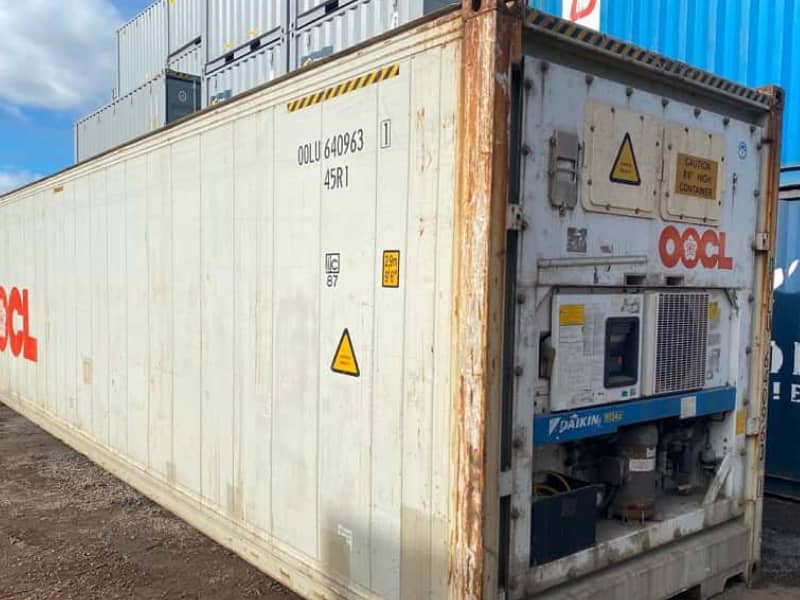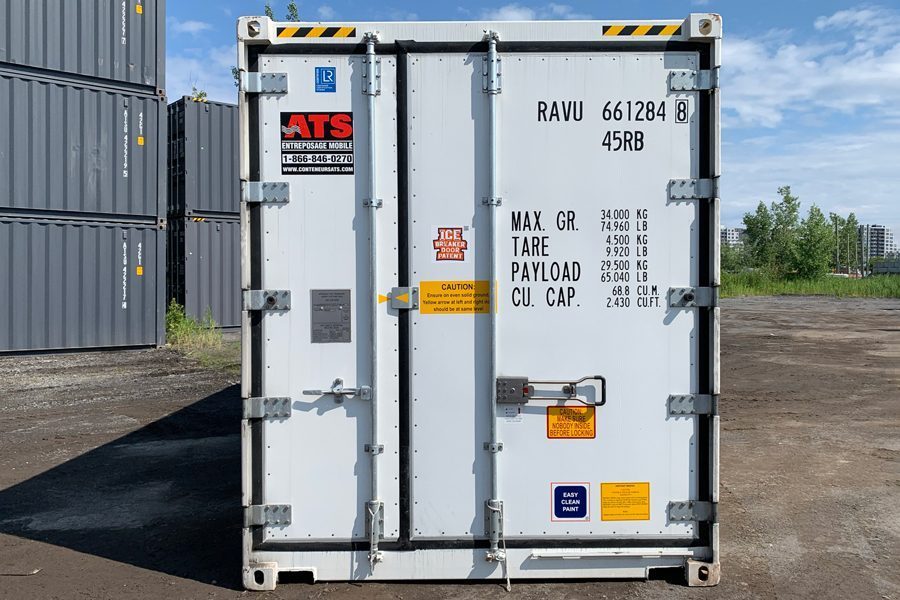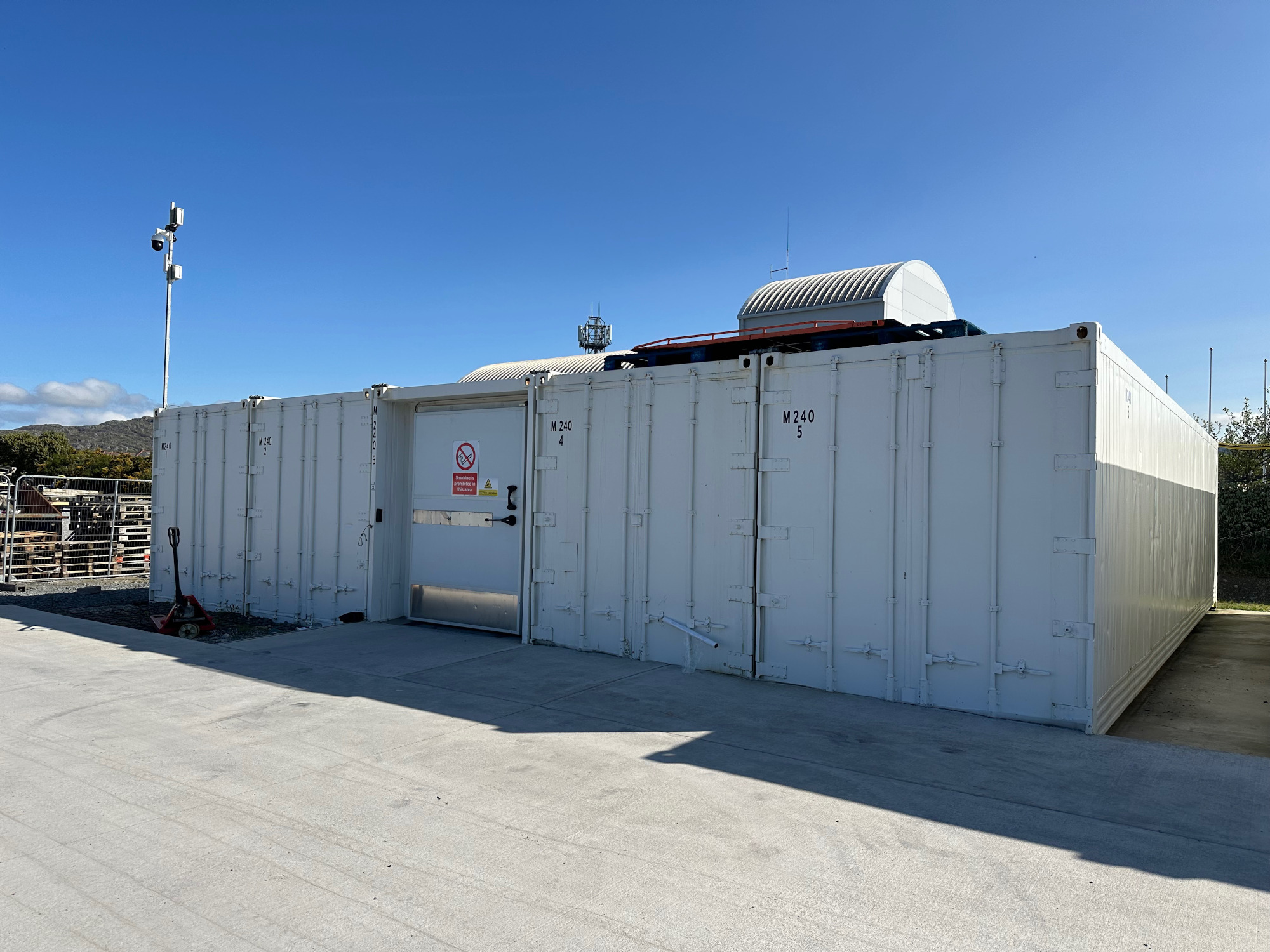Everything About Cold Store Containers: Important Insights for Your Storage Space Demands
Cold store containers play an important function in the preservation of subject to spoiling products. They are available in various kinds, consisting of refrigerated and shielded systems, each created for certain storage space requirements. Recognizing the advantages and vital functions of these containers is necessary for organizations intending to maximize their procedures. As the need for effective storage space solutions expands, checking out the different choices readily available can lead to notified decisions that influence both earnings and sustainability. What aspects should one think about when choosing the best container?
Types of Cold Storage Space Containers
Cold storage space containers been available in different types, each made to satisfy certain temperature control demands. Amongst one of the most typical kinds are refrigerated containers, which maintain temperature levels between 0 ° C to 10 ° C, making them suitable for subject to spoiling items like fruits, veggies, and milk items. An additional kind is the deep fridge freezer container, which runs at temperatures listed below -18 ° C, suitable for long-lasting storage space of frozen items such as meats and fish and shellfish.
Insulated containers provide temperature level stability without active cooling, making them useful for temporary transportation of temperature-sensitive products. Additionally, there are mobile freezer units, which use adaptability in places and are commonly utilized in events or seasonal procedures. Lastly, blast chillers quickly lower the temperature of warm foods, making certain security and top quality. Each type serves a special purpose in different markets, from food service to drugs, emphasizing the importance of selecting the best container for particular storage requirements.

Benefits of Making Use Of Freezer Solutions

Chilly storage space remedies prolong the shelf life of products, lowering waste and enhancing success for companies. By effectively managing inventory with appropriate temperature control, business can enhance their supply chains and improve functional performance.
Additionally, freezer facilities permit for adaptable storage space options, suiting different volume demands and seasonal fluctuations in demand (used 40ft refrigerated shipping containers). This versatility aids organizations respond quickly to market modifications
Employing cool storage space services can ensure compliance with health and wellness and security laws, guarding both consumers and businesses. Generally, the tactical use cold store boosts item monitoring while advertising sustainability and financial viability.
Secret Attributes to Try To Find in Freezer Containers
When choosing cold storage containers, a number of key features value cautious factor to consider to protect peak efficiency and dependability. Initially, temperature control abilities are vital; containers ought to maintain consistent temperatures ideal for particular products. Insulation top quality likewise plays a significant duty, as remarkable insulation minimizes energy consumption and enhances temperature level security.
Next, simplicity of gain access to and loading is critical; containers need to provide easy to use styles for efficient handling and organization. Durability is one more important element; weather-resistant materials assure durability and safeguard components against ecological variables.
Additionally, mobility features, such as built-in wheels or raising points, facilitate transport, while personalized layouts permit for tailored storage remedies.
Keeping an eye on systems, including temperature alarm systems and remote monitoring, provide real-time updates, making specific that conditions continue to be excellent. By concentrating on these features, individuals can choose freezer containers that fulfill their functional demands successfully.
Choosing the Right Cold Storage Container for Your Demands
Selecting the ideal cold store container calls for a thoughtful analysis of certain needs and operational demands. Aspects such as the sort of items being saved, temperature level sensitivity, and volume must be prioritized. For instance, perishable food things may demand containers with strict temperature level controls, while pharmaceuticals may call for exact problems to preserve effectiveness.
Furthermore, prospective users need to take into consideration the container's dimension and mobility. A bigger device might be needed for bulk storage, while smaller, mobile options could be ideal for on-site or short-term demands. Insulation top quality and power efficiency are likewise critical, as these will certainly impact functional expenses and temperature security.
Conformity with industry regulations and requirements is essential, particularly in fields like food and health care. By thoroughly reviewing these facets, individuals can select a cool storage space container that properly fulfills their unique demands and warranties optimal storage conditions.
Finest Practices for Keeping Cold Store Issues
Keeping suitable cool storage space conditions is important for protecting the high quality and security of temperature-sensitive products. On a regular basis checking temperature level and moisture levels is critical; making use of dependable digital thermometers and hygrometers can give precise analyses. Moreover, correct insulation of cold store containers helps reduce temperature fluctuations and power loss.
Executing a first-in, first-out (FIFO) system ensures that older stock is utilized before you could try this out more recent supply, lowering waste (used 40ft refrigerated shipping containers). In addition, keeping an arranged design within the storage room enables for much better airflow and decreases the danger of cross-contamination
Regular maintenance examine devices, such as seals and compressors, are very important to protect against breakdowns. Team training on ideal methods for filling and dumping products assists preserve temperature integrity. Finally, maintaining doors closed as much as possible restrictions warm exchange, guaranteeing that the cold store atmosphere stays steady and reliable in protecting important products.
Price Considerations for Cold Store Solutions
When evaluating cold store options, it is important to take into consideration the preliminary investment costs along with ongoing operational expenses. A thorough break down of these expenses can expose significant long-term financial savings possibility for companies. Understanding these economic elements aids stakeholders make informed choices concerning their cold store requirements.

Preliminary Investment Prices
The economic landscape of cool storage space containers presents numerous first investment costs that services have to consider. These prices usually include the acquisition or rental price of the containers, which can vary based on type, insulation, and dimension top quality. Furthermore, expenses connected to retrofitting existing structures to suit cold store needs to be factored in, specifically if specialized equipment is required. Installment costs, including find more information electrical job and refrigeration systems, likewise add to the total initial financial investment. Companies need to not overlook transport costs for delivering containers to their desired place. Ultimately, prospective customization alternatives, such as shelving or temperature level monitoring systems, can even more affect the first economic investment. Careful budgeting for these elements is important for effective freezer execution.
Operational Expenses Break Down
Functional expenditures for freezer remedies encompass a number of important price considerations that organizations have to navigate. Secret aspects include energy prices, which can be significant because of the demand to maintain reduced temperature levels. Maintenance expenditures are additionally substantial, as normal maintenance is necessary to assure devices operates effectively and stays certified with health and safety and security standards. Furthermore, labor costs may develop from the need for specialized staff to manage and check the storage space environment. Insurance costs are an additional factor to consider, as business should protect their financial investments versus potential losses. Ultimately, any potential regulative conformity costs must be factored in, as organizations might need to see post buy systems that comply with food security and ecological policies. Recognizing these costs is essential for efficient budgeting.
Long-Term Cost Savings Possible
Buying cold store services supplies substantial long-term cost savings capacity, transforming initial expenses right into financial effectiveness in time. By decreasing putridity and waste, services can improve their revenue margins substantially. Advanced insulation and energy-efficient systems minimize utility costs, which collect over the life expectancy of the devices. Cold storage containers often need less constant upkeep compared to traditional refrigeration techniques, leading to lower repair work expenses. The capability to store items for extended durations without compromising high quality allows companies to maximize market changes, enhancing profits. In addition, the scalability of freezer remedies allows companies to adjust to changing demands without sustaining extreme costs. Generally, these variables contribute to an engaging situation for cold storage space as a cost-effective investment technique.
Often Asked Questions
How Much Time Can Food Be Kept in Freezer Containers?
The duration food can be kept in cool storage space containers differs by type. Normally, perishable items last from days to weeks, while icy foods can continue to be secure for months, relying on proper temperature and storage problems.
Are Cold Store Containers Energy-Efficient?
The energy effectiveness of freezer containers varies based upon design and insulation top quality. Modern units typically use innovative innovation to minimize energy intake, ultimately adding to decreased operational costs and ecological impact in long-term usage.
Can Cold Store Containers Be Personalized for Particular Needs?
Freezer containers can indeed be personalized to satisfy particular requirements. Modifications may consist of temperature controls, size changes, and added functions, allowing users to customize remedies effectively for numerous storage requirements and functional preferences.
What Are the Usual Sizes of Cold Storage Space Containers?
Cold store containers usually come in basic dimensions such as 10, 20, and 40 feet. These dimensions suit various storage requirements, ensuring adaptability for services requiring temperature-controlled atmospheres for disposable goods or delicate materials.
Do Cold Storage Space Containers Require Special Authorizations for Usage?
Freezer containers frequently call for special authorizations for use, depending on neighborhood guidelines and intended applications. Authorities might mandate permits to assure safety criteria, ecological conformity, and appropriate functional methods are kept during their utilization.
Cold storage space containers come in various types, each made to satisfy specific temperature level control needs. Furthermore, cool storage centers enable for adaptable storage alternatives, suiting various quantity requirements and seasonal variations in demand. Selecting the appropriate chilly storage container needs a thoughtful analysis of particular demands and functional requirements. The monetary landscape of cool storage space containers presents various preliminary financial investment costs that companies must consider. Cold storage space containers can indeed be personalized to satisfy particular demands.